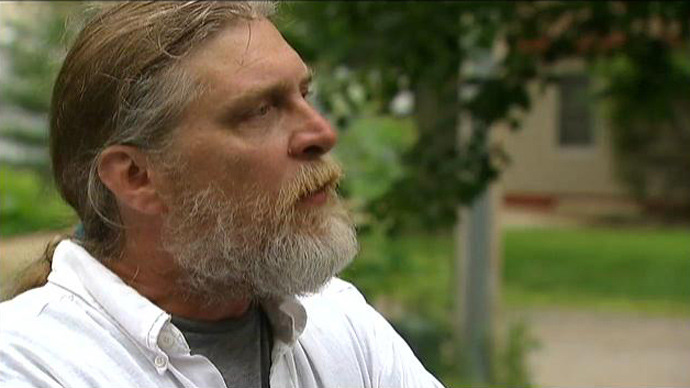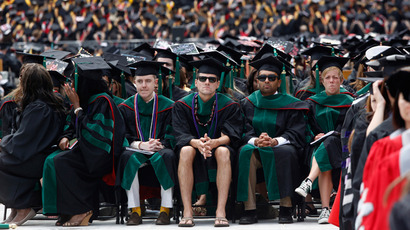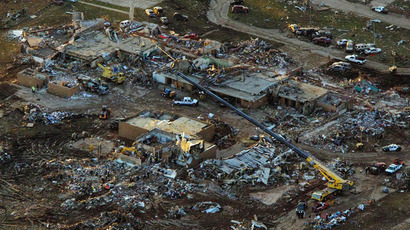Illinois teacher punished for 'mischaracterizing' Fifth Amendment issue

An Illinois school board has decided to discipline a high school teacher who it says “mischaracterized” the intentions of administrators by advising students of their Constitutional rights before surveying students in his class.
School administrators in Batavia, Illinois will punish social studies teacher John Dryden with a letter of remedy, which outlines certain probationary actions he must compete or else face more consequences. Only one board member, according to the Chicago Daily Herald, voted not to punish Dryden, citing only his “feelings” against doing so.
Members of the Batavia community and social media users previously rallied around Dryden, who advised three of his classes that the Fifth Amendment to the US Constitution guarantees them the right to avoid self-incrimination before they took a survey regarding drug and alcohol use, as well as their emotional tendencies. Every survey was marked with an individual student’s name and was intended, the school says, for review by counselors and psychologists who were trying to screen students that may need therapy or extra help.
Parents were uncomfortable with the school’s decision to share the results of the survey with the private corporation that sold the questionnaires.
Dryden previously admitted it was “dumb luck” he was able to review the questionnaires before passing them out, and that he would have consulted administrators if given more time.
“Somebody needs to remind them they have the ability not to incriminate themselves,” Dryden said, adding that the real issue was not his conduct but the aims of the questions. “I have asked people to talk about the survey. I think I am a sideshow. I’m not a martyr.”
Superintendent Jack Barshinger told reporters there was no Fifth Amendment issue at stake because once students' names were on the forms the documents became subject to student records and, consequently, student privacy laws. An admission of underage alcohol or drug use is not a punishable offense, Barshinger continued, saying police would only arrest a student if they are harming other students.
School board president Cathy Dremel, after a closed-door meeting where Dryden and several supporters spoke, said the social studies teacher “mischaracterized” the intention of the survey, which was not to invade students' privacy but to determine how the school could focus attention on specific students.
“The board will not support any employees giving students false impressions about those who come here every day” to work in the best interest of the students, Dremel told the Chicago Daily Herald.
At least some parents - some of which signed the petition to support Dryden, which attracted more than 4,000 signatures - stood by their previous assertion that Dryden was right to remind the students of their Constitutional rights.
“I was not made aware a survey was going to be issued to my son, and basically was not given any opportunity to protect his privacy rights,” said one mom, who also works at Batavia High School. But Dryden was joined in his stance that the entire conversation should have been shifted from himself to the goals of the survey, which he previously said was “rushed and wasn’t vetted.”
Scott Bayer, a wrestling coach at the school who also teaches social studies, said when the issue surfaces again both sides need to communicate better, with each other and the community.
“We as teachers were put in a situation where we were forced to react,” he said. “Things were not communicated very well, students were apprehensive and had questions, and we couldn’t give answers.”














